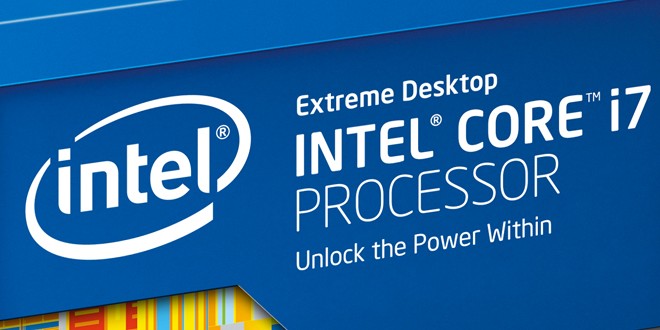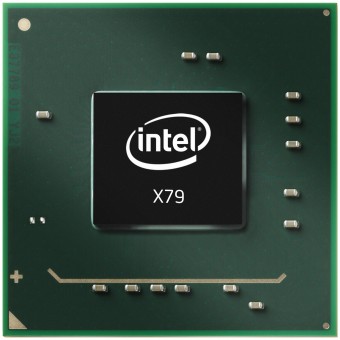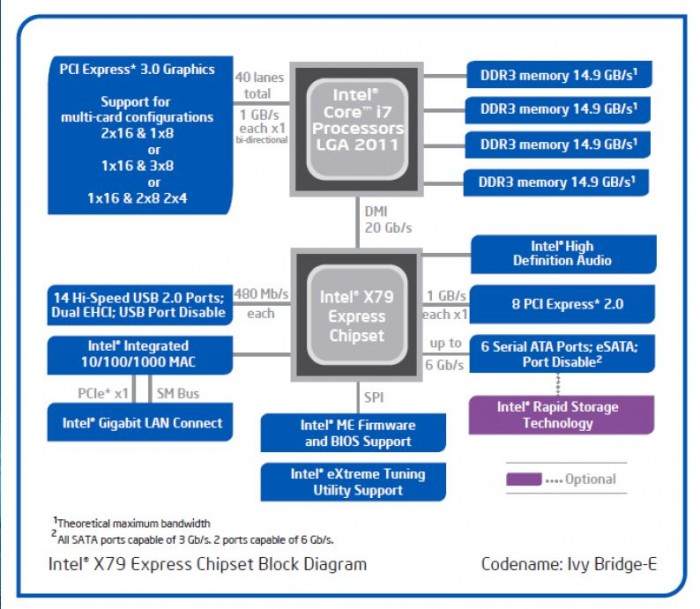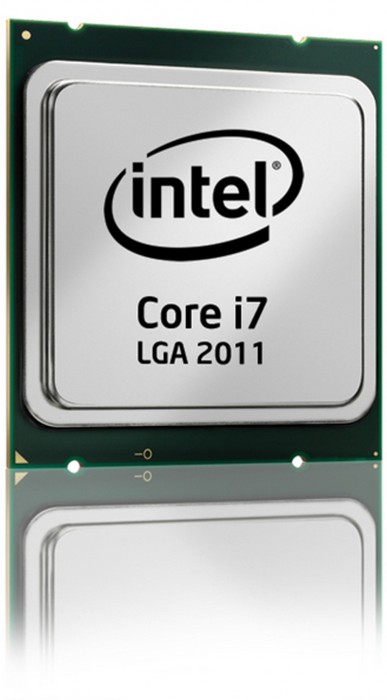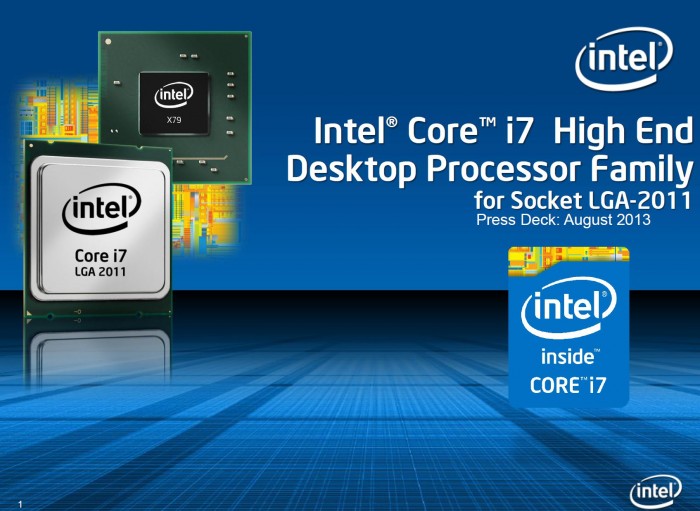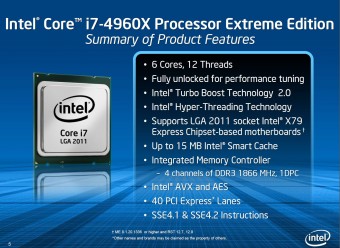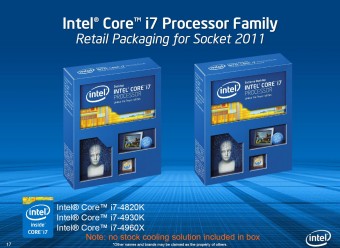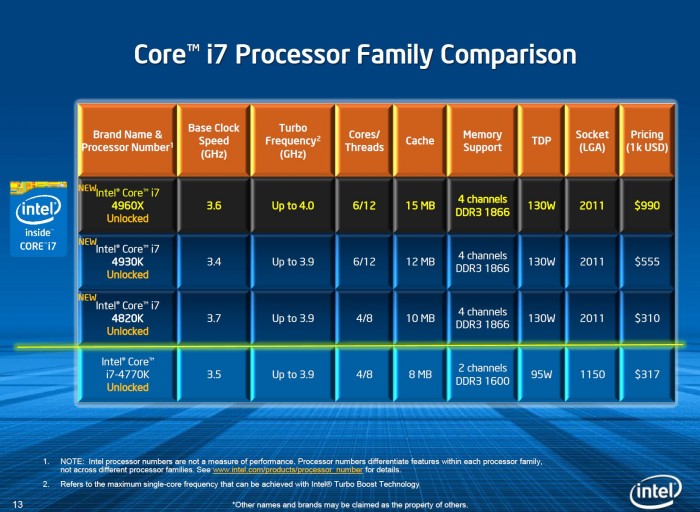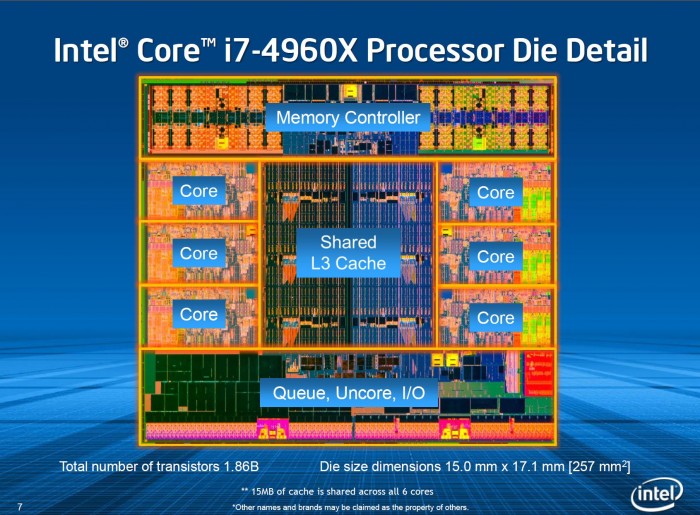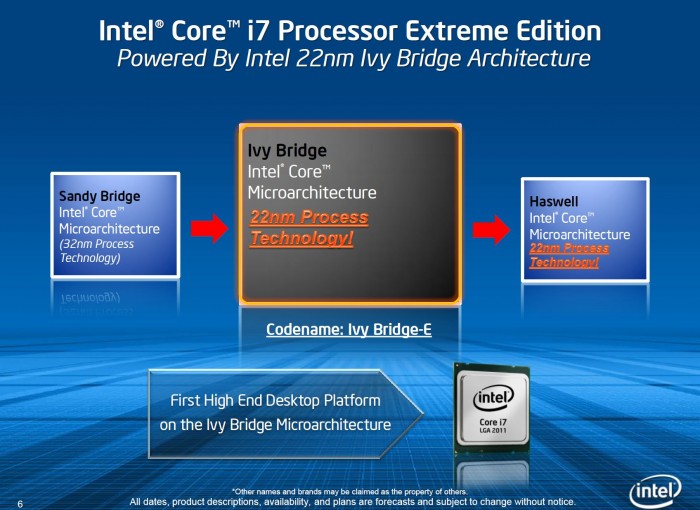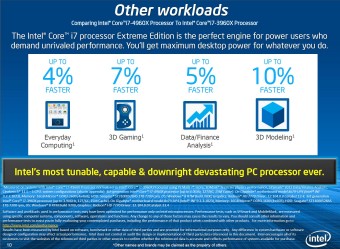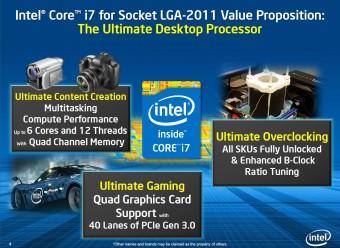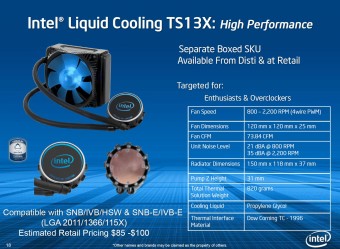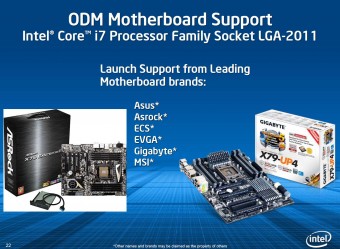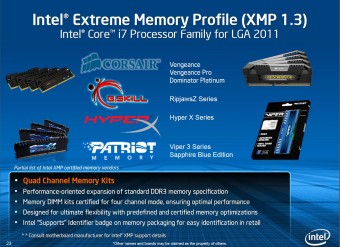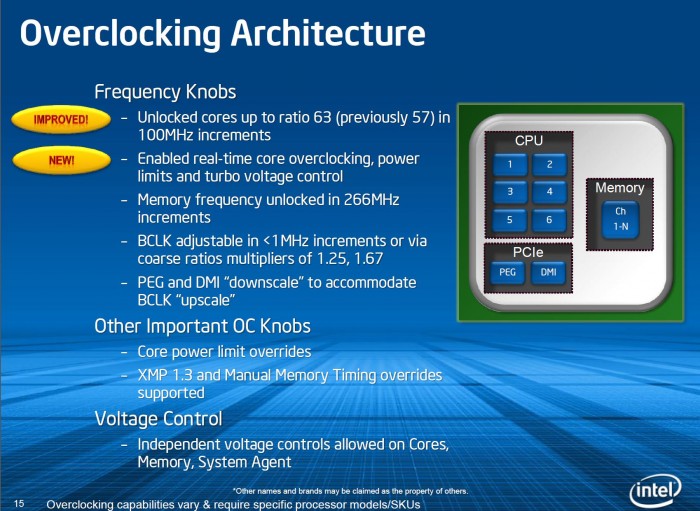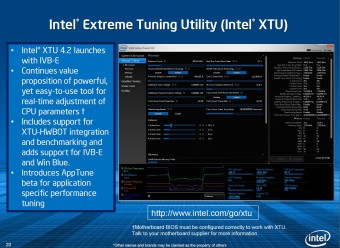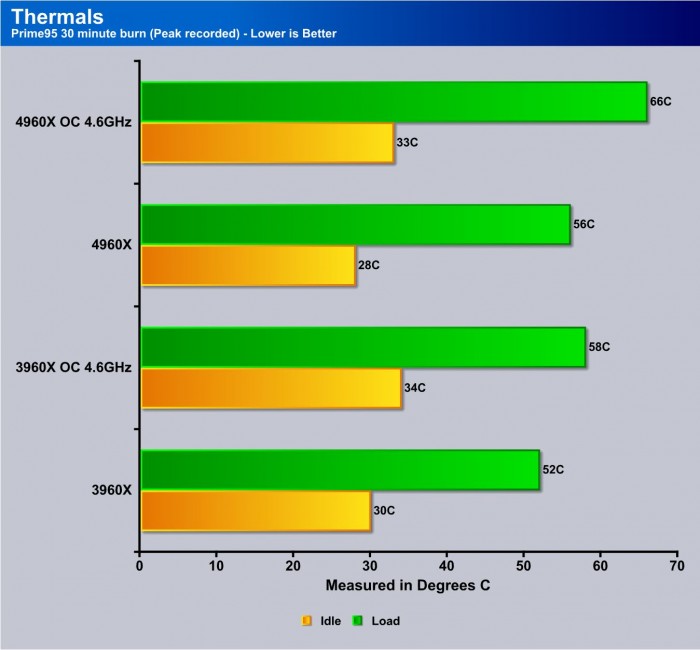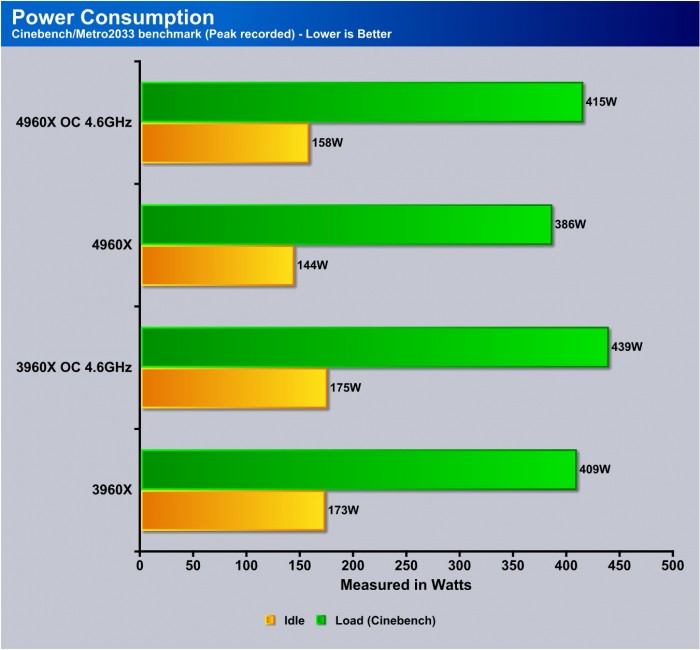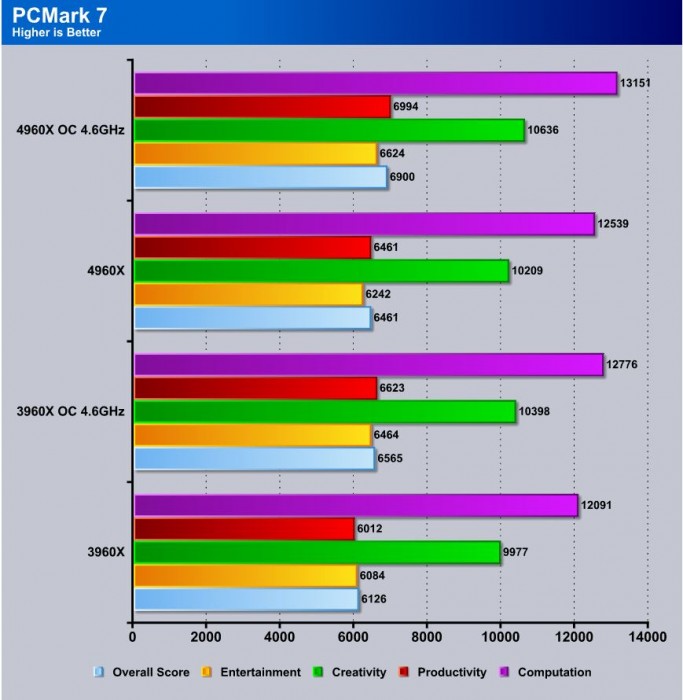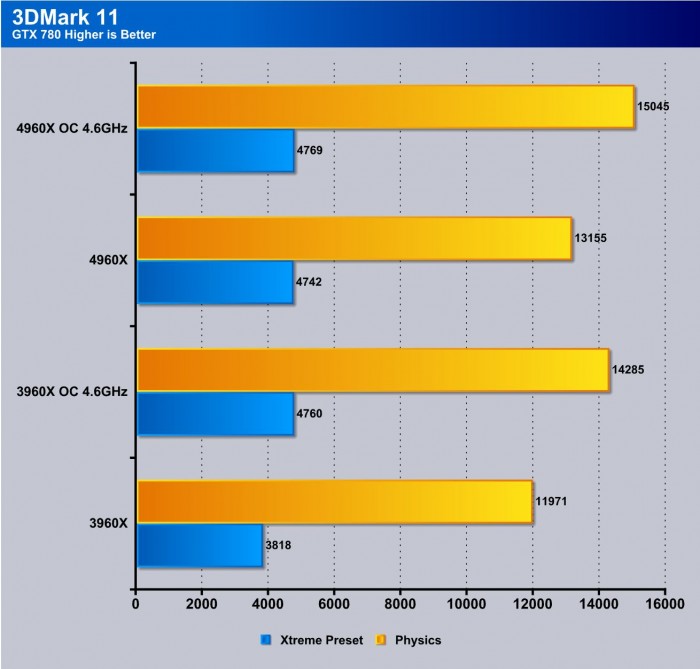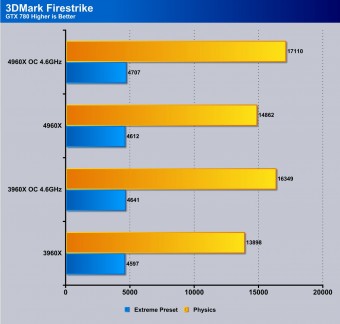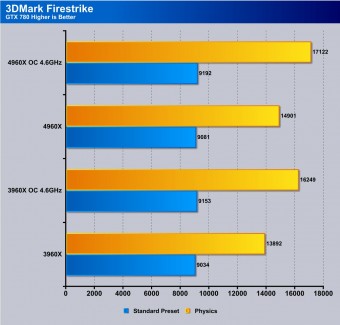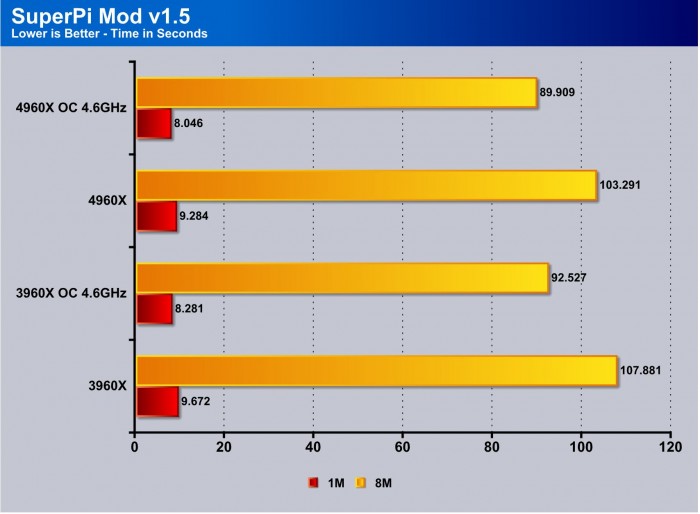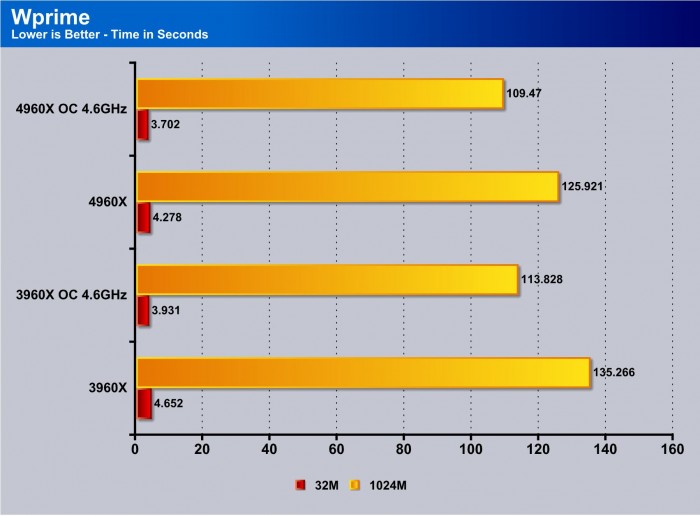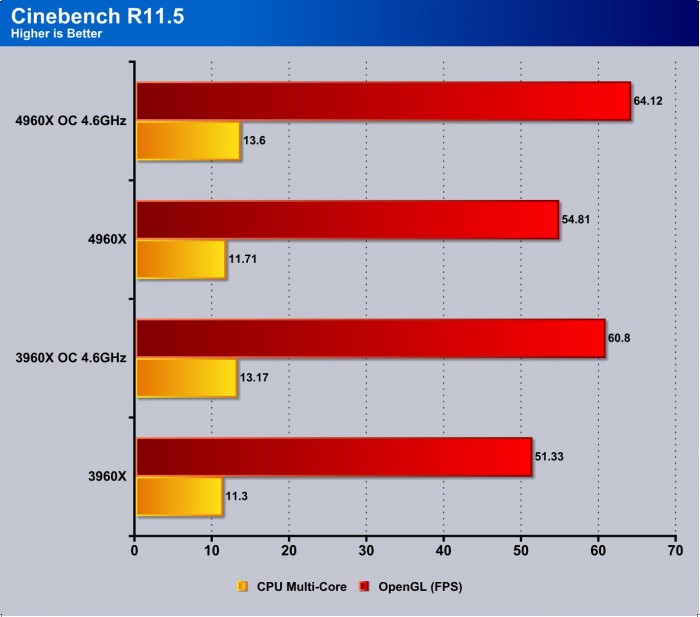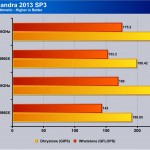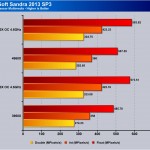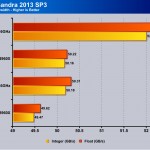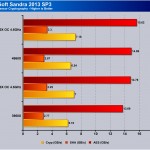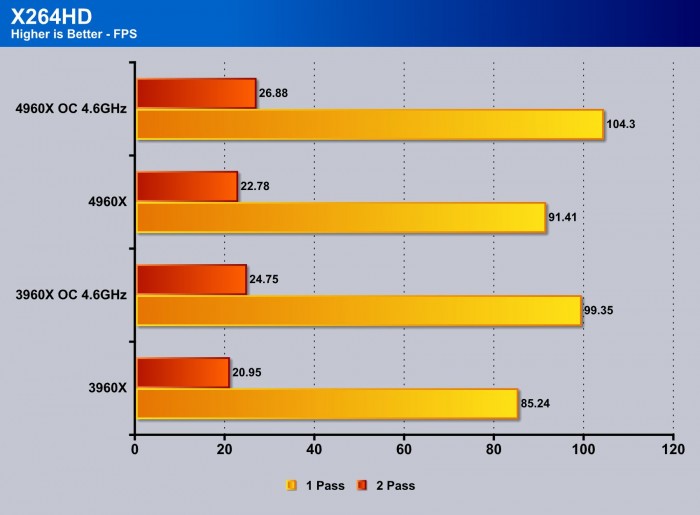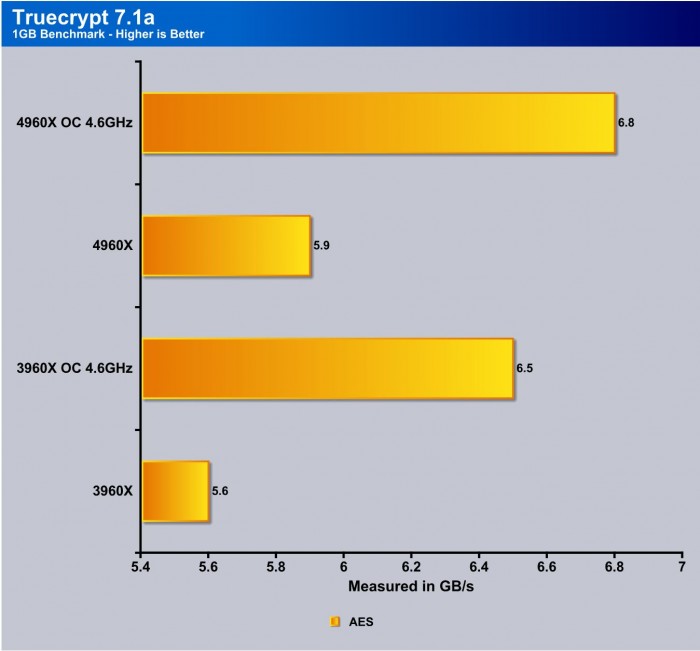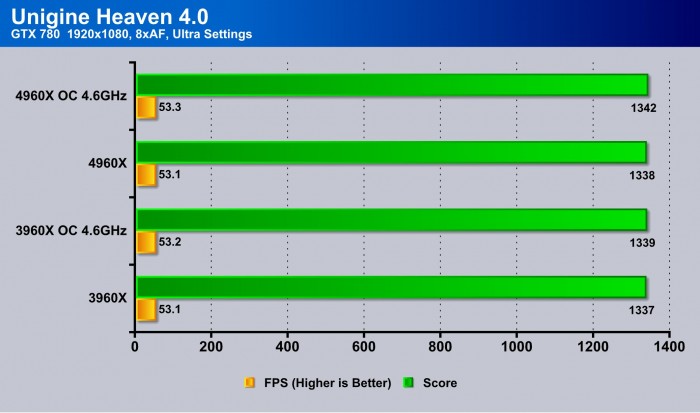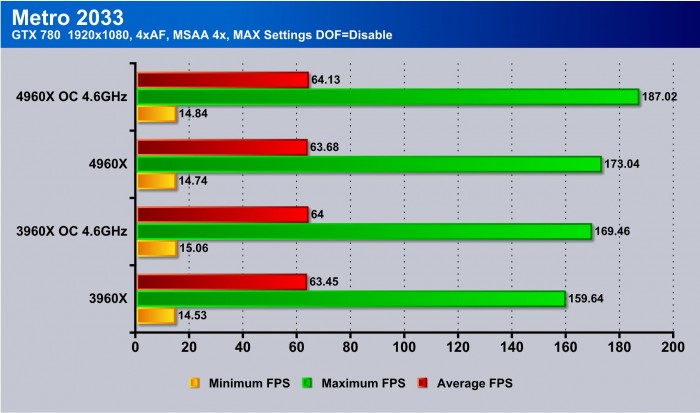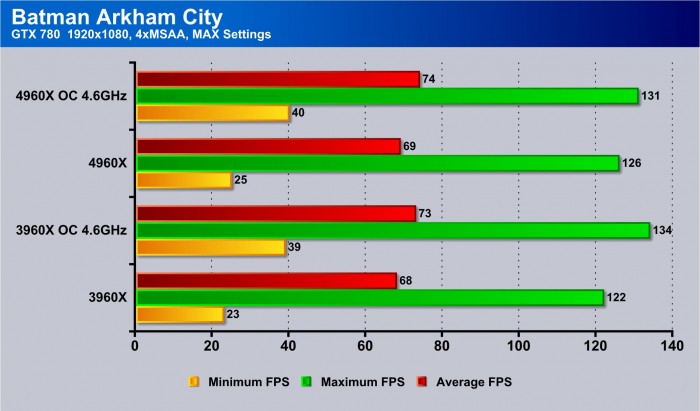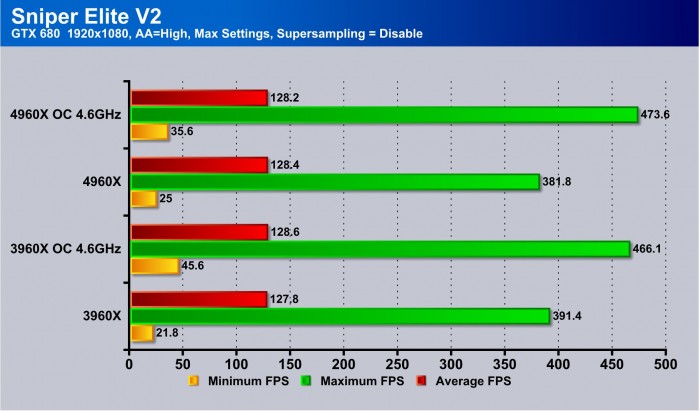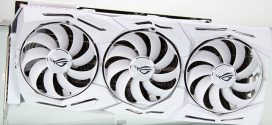Intel’s New Ivy Bridge-E Has Landed!
Normally when Intel launches a new CPU it is brought along with a new chipset even if its the same socket. If you remember the launch a short while ago moving from Sandy Bridge to Ivy Bridge, it utilized the same 1155 socket but launched a new chipset Z77 along with the new CPU to support some new features even though it used the same socket.
Today we are looking at the new Ivy Bridge-E CPU which is based on the LGA 2011 Socket type and with it we did not receive a board or any of that normal stuff we would get with an Intel launch. That is not a huge deal as we always found the Intel boards rather basic honestly but they did provide very good baseline and even OC based performance for which we could use to test all future board models against. However with Intel’s announcement that they are leaving the motherboard market left me wondering how exactly new CPU/Chipset launches would take place. Looks like we won’t find out about how chipset launches will roll out yet as the new 4960X is a drop in for any X79 board as long as you have the necessary BIOS revision in place before putting the new chip in. One thing we will note is that board partners will now have to be very “on the ball” with BIOS and compatibility support. Since Intel is leaving the motherboard market for desktop platforms, that means for testing we the reviewers will need a board for testing and that is exactly some of the issues we found this launch and we will go over that fun ordeal in the following article.
With the new CPU comes a new block diagram but we can say with some certainty that the X79 still functions as normal at least with existing boards the only major changes would be the CPU related bits such as stronger PCIe support and the IMC which is the 1155 version of Ivy Bridge was any sign should be a very strong performer.
Intel Core i7-4960X Processor
The new Ivy Bridge-E CPU is based on the 22nm design which is quite funny since the mainstream part has already been to Ivy and now to Haswell while the high end part is just now getting to the 22nm Ivy Bridge. We find this kind of funny as normally you would think that the high end enthusiasts parts would be the first on a new die or new technology similar to the way ASUS always has the newest innovations on the ROG products and eventually those trickle down in select parts to the mainstream lineup. Here it is completely backward as Haswell has actually been out a few months now and just now we are seeing the extreme enthusiasts Ivy Bridge based model.
Here is the intro to the standard Intel press deck which is quite simple like so many before it although we must say this press deck after going through it a bit is a lot more based on product rather than the heavy focus on some of the more trend based wording we have seen previously. This is not a bad thing as it gives us much of the info you will need without some of the fluff we had seen before.
The first thing of interest comes from the summary of product features of the new CPU. 6 Cores, well the 3960X is 6 cores and 12 threads as well so it is more referencing being the first Ivy Bridge based model to be 6 Cores vs the 3770K which was the top Ivy model at 4C/8T previously. Fully Unlocked for performance tuning is definitely a plus but also a feature of the 3960X as well which by the way not to be a spoiler but that is the CPU we will be testing against as well. Turbo Boost 2.0 is onboard as well but has been around since the Intro of Sandy Bridge so once again nothing ventured, nothing gained. Hyperthreading also in plays here and same on 3960X and well many CPUs before that so nothing new there as well. Basically from what we see without going into the nitty gritty it’s a 22nm 3970X which is not a bad thing but we will have to head to the testing to see exactly how well teh performance and power fares in order to best figure out the advantages to this CPU as so far on paper the specs look like its a 3970X just with a die shrink.
The Ivy Bridge-E models will launch as three models pretty much spot on teh same as Sandy Bridge-E did. One X model at 1K price tag, a K model with same 6C/12T configuration fully unlocked with a slightly lower out of the box clock and a 3MB loss to the cache and lastly the more mainstream unit the 4820K which is 4C/8T so lop off two active cores and give it a 10MB Cache and it now looks like a 4960X with 2 Cores removed. With a price tage expected at approximately $310.00 USD I am betting you can find it in the high 200’s pretty quickly this may be the value chip to get especially since Intel decided to unlock this chip this time around as well.
For anyone who pays attention to die shots will notice a major improvement here in the Ivy Bridge-E die. For those of you who saw the Sandy Bridge-E die and remember it you know that the 3960X was an eight core Die cut down to six, whereas you can see above the Ivy Bridge-E Die is a true 6 Core based Die with all cores active and nothing cut down. Obviously the lower model chips will have the appropriate cuts made to match the model spec but overall I find that having a chip actually made for what it is supposed to be instead of a partially active chip means more focus on the target product and knowing you have a purpose built chip and not something that simply did not pass muster as the full chip so parts were disabled to make it the part you pay for. Also, looking back I did notice that the die size for the 3960X was listed as 20.8mm x 20.9mm whereas when you look above the 22nm die is 15.0mm x 17.1mm so a significant reduction there as well.
The new architecture as seen here shows the placement but whats devoid here is the Tick/Tock reference we had on the 3960X press slides and I am not sure if this is a sign of a change in direction for the way Intel Markets the new CPUs or how they are managed but I do like that it is laid out a bit more simple and to the point once again. As you can see the new Haswell architecture is in line and rumors speculate as early as next year for the Haswell Enthusiasts versions which I can only hope will bring with it similar functionality that the Z87 brought to the table like full SATA 6G on all ports, many more chipset USB 3.0 and overall even better efficiency and power savings.
Here you can see that the claims to the performance benefits vs the outgoing 3960X which touts a increase average of about 4-10% depending upon the app but we will confirm some of these numbers coming up in the testing. The new Ivy Bridge architecture if it reflects at all from its 1155 based counterpart it will likely be to show that the gain is largely computational while high end gaming will only see small bumps as the PCIe bandwidth is simply so large that there really is no bottleneck in the current generation of CPUs. On the next slide of the press material Intel highlights some key target points for the audience of this CPU being:
- Ultimate Content Creation
- Ultimate Gaming
- Ultimate Overclocking
I like that they bring content creation into the mix as honestly when you get to a processor this high end it really is mostly suited best for content professionals who utilize apps which can scale to this processors full capabilities.
Ultimate gaming is kind of a wash for me as I feel most gaming on a Ivy Bridge or HAswell system will do just fine for the majority of gamers while some of the more ewxtreme builders such as those running 3 Way or even 4 Way card setups could see a benefit from the larger PCIe lane count available but even a Z77/Z87 setup with a PLX Bridge would get you a similar setup at a much lower CPU cost. But if going that far in the build I think this kind of rig is justified, but Intel kind of deflated my argument to that point by making the lower end part now a fully unlocked K Sku now so that affordable overclocking is possible on this high end platform.
Ultimate Overclocking is one I was a bit befuddled with as Intel play a very funny game with overclocking in the terms that the type of overclocking they are depicting by all rights voids the CPU warranty. This is akin to a car company showing a commercial with a car with custom modifications on it as advertising then after the fact advising the vehicle owner that such advertised mods fully void their warranty. This is marketing I understand and many users buy these chips to put them to the fire anyways but at least open up to it and say something like “we love to see you guys do this but we still are not supporting you”, and using it as a marketing vehicle has always just seemed a bit wrong to me.
Click Image to Enlarge
Intel will be shipping the new Ivy Bridge-E processors without any sort of Thermal solution so you need to source your own and Intel has been offering Asetek based kits for quite some time now so that is an option but intel was quick to list some of its many partners which can also easily supply a more than sufficient cooler to fit the bill for your Ivy-E Based build.
Being that the Ivy-E chips are supported by most all X79 boards via a BIOS update you do not need to throw away your board if you have a 3960X and plan to purchase the new Ivy-E variant. Just be sure to flash the new BIOS before swapping chips unless of course you have the ASUS board with USB BIOS Flashback which can flash the BIOS without a chip or ram and even GPU in the board.
One note on support is that I checked with many vendors and some would not even have a BIOS to support the board at launch or would have it the day before so that’s something to keep in mind and not to mention the new BIOS for these chips might be similar to when a new chipset launches in that there will be the normal bug phase that will weed out issues before it gets to peak performance. This I feel is somewhat the case as I have weeded out a few small issues I experienced as ASUS sent me a BIOS for my Rampage IV Extreme board and I worked with their team to look into a few issues I observed and as they were corrected performance also moved some as well so while the performance I observe might be decent do understand that as BIOS matures and support increases performance will likely follow suite.
Fro memory there are many partners that have made quad channel kits for some time but with the new Ivy Bridge-E this may be a breath of fresh life as the IMC is now officially 1866MHz up from 1600. This may mean even higher speed support or even better performance from existing kits via the improved IMC, this will wait to be seen in this case. For our testing we used the HyperX Beast 2133 MHz 64GB kit to maximize the load on the IMC and see how strong and how well the new CPU works with a fully loaded scenario.
Overclocking
X79 still carries BCLK multipliers like it did with the original 3960X launch when we first saw it and now it carries a max core ratio of up to 63 similar to the Ivy Bridge parts which is quite an increase from the Sandy Bridge-E models which would max at 57 so basically when really pushing it you can expect to be able to possibly reach up to 6.3GHz with multi alone pending you have a chip capable to do so. I do have a few chips but I simply have not had enough time to test many samples so time will come soon when I can weed through them to find an average clock to be expected.
The BCLK is not the only solution as well since the BCLK straps can be used which allows to offload some CO headroom to the BCLK side which also allows for adjustment and modification of the memory speed as well since the BCLK strap changes not only CPU base frequency but also the base for DRAM as well. With the strapping I was able to hit the 125 strap with ease but 166MHz with overclocking became unstable rather quickly and this could definitely be BIOS related as I said before the BIOS still felt like it needed a little more tuning to be really up to its top performance standard and since the Rampage offers even BCLK profiles in the BIOS up to 190+ MHz im sure this is simply tuning and something we will have to revisit in the future.
Voltage is still the name of the game in terms of overclocking the LGA2011 boards and when just messing around with the gamers Air cooling overclock setting I was surprised to see that the board sets a 1.5V Vcore setting which to me seems like thats a bit much for an air cooler, even a really good one. the Water cooling gamers preset moved CPU Vcore up to 1.55V so this is either a mistake or something as using these settings quickly found me at the rough end of some rising temps even on my 360mm radiator liquid cooler.
Memory even with full 8 DIMM population had no issues pushing the 2133MHz memory under its XMP profile and I will have to get a higher speed eight DIMM set if possible to see the true limit of the IMC on these new chips.
For testing we settled to a 4.6GHz testing speed to ensure it is something most users with good cooling could achieve.
Intel XTU Software
Intel has had its XTU utility for quite some time and while I have used it I didnt find it that great as I was used to ASUS AISuite software which is very nice and usable but Intel’s new XTU software is looking very nice and even now has a HWBot approved benchmark so that you can share settings and results on one of the largest collective overclocking benchmark score repositories around.
By offering HWBot integration tells me that Intel is pushing its Overclocking game harder than ever before and as a extreme enthusiasts I like to see this especially from the direct chipset manufacturer as this means that the future of overclocking is safe and we will continue to see high end unlocked and overclockable components for the near future.
Temperature
To test for temperatures, we ran Prime95’s Blend stress test for 30 minutes and we have recorded the results. Then we waited for another 30 minutes before we wrote down the idle temperatures.
Here you can see that the 4960X idles very cool but under load it definitely can push out some heat but not horribly so even under overclock we did not break the 70C mark but do note that I am using a very high end liquid cooler so your thermals may vary according to voltages required and cooling application used.
Power Consumption
For overall power consumption we loaded the board in stock form with the iGPU in use and tested overall platform power with both the main SSD in use and a secondary storage drive to simulate normal system configurations. Loading was completed by running Metro 2033 along with Cinebench for a heavy rendering load on the CPU.
Here you can see that at stock conditions the 4960X platform drops almost 30 Watts below the 3960X based system at idle and under load you see about the same however under overclocked conditions the lead chops in half but still any power savings I am good with.
Testing & Methodology
We’ve expanded our testing suite considerably for the X79 chipset, and will continue to use the same methods for most of the motherboards and CPU’s we test. In the interests of thoroughness and accurate results, we run each test at least three times, and some tests more than that. We average the total of all the tests from each benchmark then report the average here. If we had any ambiguous results we left those out and ran the benchmark once again.
The OS we use is Windows 8 64bit with all patches and updates applied. We also use the latest drivers available for the motherboard and any devices attached to the computer. We do not disable background tasks or tweak the OS or system in any way. We turn off drive indexing and daily defragging. We also turn off Prefetch and Superfetch. This is not an attempt to produce bigger benchmark numbers. Drive indexing and defragging can interfere with testing and produce confusing numbers. If a test were to be run while a drive was being indexed or defragged, and then the same test was later run when these processes were off, the two results would be contradictory and erroneous. As we cannot control when defragging and indexing occur precisely enough to guarantee that they won’t interfere with testing, we opt to disable the features entirely.
Prefetch tries to predict what users will load the next time they boot the machine by caching the relevant files and storing them for later use. We want to learn how the program runs without any of the files being cached, and we disable it so that each test run we do not have to clear pre-fetch to get accurate numbers. Lastly we disable Superfetch. Superfetch loads often-used programs into the memory. It is one of the reasons that Windows occupies so much memory. Vista fills the memory in an attempt to predict what users will load. Having one test run with files cached, and another test run with the files un-cached would result in inaccurate numbers. Again, since we can’t control its timings so precisely, it we turn it off. Because these four features can potentially interfere with benchmarking, and and are out of our control, we disable them. We do not disable anything else.
Test Rig
| Test Rig | |
| Case | Open Test Bench |
| CPUs |
|
| Motherboards |
|
| Ram | Kingston HyperX Beast 2133MHz memory 64GB (8x8GB) |
| CPU Cooler |
|
| Hard Drives | Western Digital Velociraptor 1TB 10000RPM 6Gb/s Hard Drive |
| SSD | 1x Kingston HyperX 240GB SATA III 6Gb/s SSD |
| Optical | ASUS DVD-Burner |
| GPU | Nvidia GTX 780 |
| PSU | Thermaltake Toughpower XT 1475W Gold |
| Mouse | Tt eSPORTS Black Gaming Mouse |
| Keyboard | Tt eSPORTS Meka G1 Mechanical Gaming Keyboard |
Test Suite
We will use the following applications to test the performance of the Z87 Chipset (Motherboard, Processor).
| Benchmarks |
|---|
| SuperPi Mod 1.5 |
| Wprime 1.55 |
| PCMark 7 |
| 3DMark 11 |
| 3DMark Firestrike |
| Cinebench R11.5 |
| SiSoft Sandra 2013 |
| X264HD |
| Truecrypt 7.1 |
| Unigine Heaven 4.0 |
| Metro 2033 |
| Batman Arkham City |
| Sniper Elite V2 |
PCmark 7
First up is PCMark and, we can see that overall there is a very nice increase with not only computation but areas such as entertainment, as you can see overall the efficiency pays off in spades here as the rig can simply do more work but you must remember that the stock speeds the 4960X is 100MHz faster so I tend to look at the OC speeds where we locked each chip in at 4.6GHz and as you can see even there it does very well with a nice solid lead.
3DMark 11
3DMark 11 being a representation of theoretical gaming performance via a synthetic benchmark it shows great promise for the Ivy based rig as the overall score increases but the Physics score which is CPU based sees very nice gains across the board.
3DMark 2013
With 3DMark (2013) Firestrike which is made for high end desktop configurations you have two modes which is standard performance and extreme each of which stresses the system differently but both are made to show performance on higher end systems which means its perfect to show what this platform can do. Straight away the single 780 gets put to work and you can see that the increases scale quite well similar to the 3D11 test with the Ivy based solution and even when locked at the same speed for the OC tests the Ivy based solution simply pulls better results.
SuperPi
This tests single threaded performance and clock efficiency by processing digits of the number pi. Moving from the 3960X to the 4960X you can see an approximate gain of 3% at the same clock speed under the OC results which shows the work can be done a bit faster but its not a huge increase as I would expect closer to around 7-8% honestly.
Wprime
WPrime is similar to Superpi, but first of all it is multi threaded and also although it is named Wprime it does not calculate Pi or even prime numbers but instead calculates Square roots via a method I will not explain as I don’t want to lose most of you in a technical explanation unnecessarily.
Here you see that the 4960X when clocked for OC pulls about 4% in multithreaded calculations which is a bit better but not as huge of an upgrade as I expected coming into this.
Cinebench R11.5

“CINEBENCH is a real-world test suite that assesses your computer’s performance capabilities. MAXON CINEBENCH is based on MAXON’s award-winning animation software, CINEMA 4D, which is used extensively by studios and production houses worldwide for 3D content creation. MAXON software has been used in blockbuster movies such as Spider-Man, Star Wars, The Chronicles of Narnia and many more. MAXON CINEBENCH runs several tests on your computer to measure the performance of the main processor and the graphics card under real world circumstances. The benchmark application makes use of up to 16 CPUs or CPU cores and is available for Windows (32-bit and 64-Bit) and Macintosh (PPC and Intel-based). The resulting values among different operating systems are 100% comparable and therefore very useful with regard to purchasing decision-making. It can also be used as a marketing tool for hardware vendors or simply to compare hardware among colleagues or friends.”
SiSoft Sandra 2013
“SiSoftware Sandra (the System Analyzer, Diagnostic and Reporting Assistant) is an information & diagnostic utility. It should provide most of the information (including undocumented) you need to know about your hardware, software and other devices whether hardware or software. It works along the lines of other Windows utilities, however it tries to go beyond them and show you more of what’s really going on. Giving the user the ability to draw comparisons at both a high and low-level. You can get information about the CPU, chipset, video adapter, ports, printers, sound card, memory, network, Windows internals, AGP, PCI, PCI-X, PCIe (PCI Express), database, USB, USB2, 1394/Firewire, etc.”
Here with Sandra testing, you can see pretty much across teh board there are improvements some more notable than others. Memory bandwidth gets a nice little bump as well but overall performance is simply a bit better even at matched speeds for the OC testing.
X264HD
Transcoding has become more popular now and the latest Sandy Bridge processor added support for AVX instruction for faster video transcoding. With that you can see that going from 3960X to 4960X we see a quite sizable gain here now approaching 5% for Pass 1 and 8% on Pass 2.
Truecrypt 7.1
TrueCrypt is a real world application that gives a good indication of the the encryption performance of the CPU and here you can see that once again at matched speeds via the OC setting at 4.6GHz you see about 4.5-5% increase going from the 3960X to the 4960X CPU.
Unigine Heaven 4.0
Unigine Heaven is a benchmark program based on Unigine Corp’s latest engine, Unigine. The engine features DirectX 11, Hardware tessellation, DirectCompute, and Shader Model 5.0. All of these new technologies combined with the ability to run each card through the same exact test means this benchmark should be in our arsenal for a long time.
Unigine Heaven using the 780 at max settings shows a very menial or marginal gain and within margin for error which tells me that the PCIe bus is not saturated on either platform and performance under this kind of load is spot on similar.
Metro 2033
Once again, Metro 2033 shows that discrete GPU performance is relatively unaffected, simply due to the fact that there is already so much unused bandwidth available.
Batman Arkham City
In Batman Arkham City we actually see soem increases in performance via overclocking which tells me that either this game is very heavy on the bus but more likely it simply uses more CPU than some of the other test games.
Sniper Elite V2
Sniper Elite V2 also shows similar results with the GPU being the main bottleneck here, .
Our Final Thoughts
The X79 Chipset has been a very capable enthusiasts chipset for awhile now but some features I think should really be available to the high end at this point such as more than two SATA 6G ports. also more Intel chipset USB3.0 ports should also be on the bill as well so i think being able to offer at least some sort of concessions in this form from Intel would have been a huge plus in this launch.
Overall the new Ivy Bridge architecture or should I say the not so new Ivy Bridge architecture got a -E and we are off to the races. The chip is not bad as it increases performance by a small amount but the 3-6% I observed is not really enough that I would recommend users to ditch their 3960X and jump to the 4960X. Do keep in mind that BIOS maturity is questionable so the performance could easily increase but as of now I would have to label it as unimpressive as it simply does not offer enough to differentiate itself from the outgoing 3960X. If there was lets say a new chipset/board taht would offer more tangible features then I would say jump for it but for existing X79 users there simply is no reason to jump.
For users on AMD or other older Intel platforms there is definite potential in the new 4820K offering being as it is now an unlocked SKU I am betting overclocking on that 4 core will be awesome although I have not tested that so it is purely speculation on my part but definitely with the new efficiecny would make for an awesome upgrade from say a i7 920 based rig..
Overall Intel has shrunk down the LGA2011 offering but the performance especially in gaming simply is not there or yet at least but time will tell if this will mature into a real killer or just a hold over offering until the enthusiasts version Haswell comes along.
Stay tuned as I plan to offer some insight into performance scaling as BIOS matures along with a few now model boards we have seen show signs of coming to market soon specifically for this chipset and who knows what is waiting in the bullpen but we will let you know as soon as we have it!
 Bjorn3D.com Bjorn3d.com – Satisfying Your Daily Tech Cravings Since 1996
Bjorn3D.com Bjorn3d.com – Satisfying Your Daily Tech Cravings Since 1996
